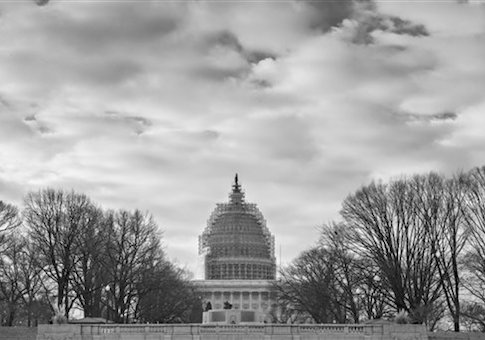LAUSANNE, Switzerland—Senate Democrats are moving to block a new proposal that would enable Congress to reimpose economic sanctions on Iran if it cheats on a nuclear agreement with the West that is expected to be finalized in the coming days, according to sources in and outside of Congress with knowledge of the situation.
The Democratic opposition to the new nonbinding proposal was described by sources familiar with the controversy as a contradiction of the Obama administration’s focus on maintaining "flexibility" during the deal’s implementation phase.
The Obama administration and its Democratic allies in Congress have long been fighting against measures aimed at providing lawmakers with legislative oversight over how the negotiations and final deal with Iran are implemented.
The need for flexibility in reimposing sanctions on Iran has emerged as the Obama administration’s top talking point in its efforts to circumvent congressional oversight of the expected deal. The administration claims any legislative action would limit the range of options for future administrations.
The new nonbinding proposal, which is being offered by Sen. Mark Kirk (R., Ill.) as an amendment to the 2016 federal budget, seeks to increase flexibility regarding sanctions, but is being met with resistance by congressional Democrats.
The amendment would establish a "deficit-neutral reserve fund" to reimpose any sanctions already lifted on Tehran and for "imposing new sanctions against Iran for violations" under any deal that is struck, according to a copy of the amendment viewed by the Washington Free Beacon.
The bill would create a stand-by fund capable of allowing lawmakers to level sanctions on Iran more easily and quickly if it cheats on the nuclear deal and continues clandestine work on a weapons program, according to sources.
However, a contingent of Democrats is already lining up to block the amendment, despite the bipartisan support that had been in place for similar sanctions measures, according to congressional insiders familiar with the situation.
Top aides to Sen. Robert Menendez (D., N.J.) are said be urging the lawmaker and other key Democrats to vote against the nonbinding measure, one senior congressional aide told the Free Beacon.
Kirk’s sanctions amendment is being viewed by insiders as "a test vote" to see whether Democrats will oppose Iran sanctions, as the Obama administration has been urging them to do.
In late January, 12 Democratic senators sent a letter to President Obama affirming their support for a separate sanctions bill being pushed by Sens. Kirk and Menendez. That bill would increase pressure on Iran if it fails to agree to a nuclear agreement by June, a deadline agreed to by the negotiating parties.
One senior congressional staffer familiar with the amendment said Democrats should be forced to put themselves on the record opposing sanctions should Iran cheat on the deal.
"If Democratic senators, who claim that they'll never allow a bad nuclear deal on their watch, cannot even bring themselves to vote for a nonbinding and uncontroversial measure saying that Iranian cheating on nuclear deals should be punished with non-military sanctions—I repeat, non-military sanctions—then how likely is it that they'll vote on the Senator floor to pass serious Iran legislation or to override a presidential veto to stop a bad deal?" the staffer asked.
"The amendment is noncontroversial as it is based on a bipartisan principle … [that] if Iran cheats or walks away from agreements, Iran gets sanctioned," the source added. "Those who would vote against this uncontroversial amendment are basically telling Israel, Gulf states, and even Iran that they do not care if Iran cheats on pacts to prevent it from getting nuclear arms."
The move to block the amendment comes as Secretary of State John Kerry and other Western leaders travel to Lausanne, Switzerland, for a final round of talks with Iran that are expected to produce a framework agreement for a final deal.
Critics of the Obama administration’s diplomacy say the deal would enable Iran to retain the most controversial aspects of its nuclear program, including the ability to enrich uranium, the key component in a nuclear weapon.
Iranian leaders are pressuring the United States to lift sanctions fully before a final deal is even reached. Both Iran and the United States have hinted that they may seek to ratify the deal at the United Nations Security Council, a move that would cut Congress out of the equation.
"The president says he wants to preserve ‘flexibility’, but he is committed to going to the United Nations first, which would tie the hands of future administrations and irreparably destroy the international sanctions regime," said one policy analyst familiar with the talks. "Now we find out that the Democrats are also trying to prevent Congress from maintaining its own flexibility."
"It seems the president only wants flexibility when it gives him an excuse to avoid letting the people’s branch of Congress have a voice on the staggeringly important national security issue," the source said.
